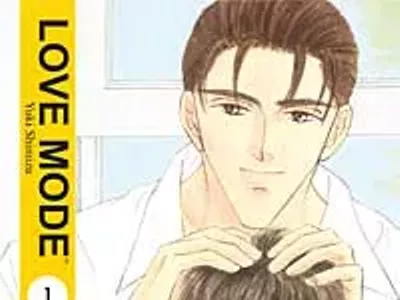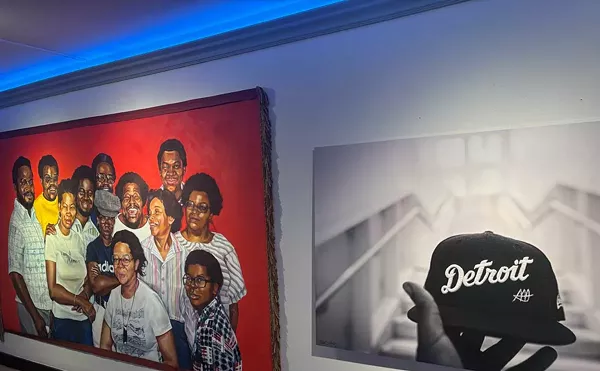
Audio By Carbonatix
[
{
"name": "GPT - Leaderboard - Inline - Content",
"component": "35519556",
"insertPoint": "5th",
"startingPoint": "3",
"requiredCountToDisplay": "3",
"maxInsertions": 100,
"adList": [
{
"adPreset": "LeaderboardInline"
}
]
}
]
They say that spring
Means just one thing
To little love birds
We're not above birds
Let's misbehave.
—Cole Porter, "Let's Misbehave" (1928)
'Cause I'm the jazzy type
And I only let you eat it if you ask me right
Well more juice than a grape when you peel the skin
But yo it ain't fun if your tongue ain't in ...
—Trina, "Nasty Bitch" (2002)
Approximately 8 trillion songs have come and gone between Porter's jaunty Jazz Age suggestion and the outright sexual taunt of Trina's Dirty South. But shift a few words around and the sentiment's the same. It's all pop music — popular music — and sex, as a rule, sells. People didn't always come right out and say it, but it was always getting hot in here.
Porter continued to align skip-through-the-tulips purity with unadulterated animalism throughout the 1920s and 1930s, scoring a string of natty Broadway hits. But his lyrics also helped establish the balance between flamboyance and subtlety that's become one of the central messages in our pop music songbook. There was a similar balance in the unspoken assuredness of jazz. Jazz. It made the moralists nuts right from the beginning. They denounced its syncopated rhythms as the devil's handiwork; they condemned the young souls who filled the floorboards at dance halls nationwide. But no one could stop that crazy beat, not even the teetotalers, and for every treatise preaching temperance there was a flipside that encouraged release. Porter's sophisticated come-ons and jazz's nocturnal pleasures shared the admission that there was more to life than stiff collars and tea room etiquette. We're not above birds, everyone but the sourpusses said. Let's do it — let's misbehave.
In the 1950s, however, the fun police had to start working overtime: Rock 'n' roll hit like a teenage riot. "Tutti Frutti," "Good Golly Miss Molly," "The Girl Can't Help It" — with their feverish pace and raucous double-entendres ("If she walks by, the men folks get engrossed," from the latter), Little Richard's streak of mid-decade hits were by themselves revolutionary. But Richard wasn't the decade's only rebel-rouser. In 1954 Detroit's own Hank Ballard scandalized radio with "Work With Me Annie," a bumping, grinding R&B hit that some mainstream pop stations refused to play. But those stations couldn't shut down the sound forever. Chubby Checker's 1959 smash "The Twist," written and first recorded by Ballard, was as suggestive as it was catchy.
Besides the allure of its pulsing beat, besides its brassy, primal honk, it was rock 'n' roll's coded language that spoke most to America's new teenage class. Jerry Lee Lewis' "Whole Lotta Shakin' Goin' On," "(We're Gonna) Rock Around the Clock" from Bill Haley and his Comets, even the Everly Brothers' "Wake Up Little Susie" — these songs encouraged rule-breakin' and below-the-belt exploration even if they didn't (or couldn't) use those words directly. It was almost better that way. The misdirection and suggestion empowered kids as a group separate from grown-ups. Teenagers weren't the ones banning records or harping about rock 'n' roll's detrimental effects on society. Teenagers were the ones dancing to these songs, and maybe doing other activities too. "When the chimes ring five, and six and seven," Haley sang, "We'll be rocking up in seventh heaven." Rock 'n' roll was a youth-centric messaging center, just like the slang and altered language structures of contemporary hip hop. And the message was: do it, do it, do it till you're satisfied.
Sex and lust have definitely been a part of music since forever, but so have chapbook hymns and doddering, soft-pedaled love themes. It's that balance again, the tug between prudishness and prurience. For every primal tribute to sex like Screamin' Jay Hawkins' "Frenzy," there's a maudlin, glazed-over love ballad by Steve Lawrence or Paul Anka. The dirty sprawl of Exile on Main Street came out in 1972, but so did the Carpenters' bright and cheery A Song for You.
And the squeak and the clean has always had another thing going for it — it's durable. When wild and throaty rock 'n' roll blows its wad in a flaming minute of virility, pleasant romanticism is there to clean up the mess. Light rock came back with a vengeance in the 1980s, after punk's angry salvos and the wiggy muster of early new wave. There was nothing dirty about Bill Medley and Jennifer Warnes telling us they'd had the time of their lives — theirs was a neutered, past-tense sexuality. Aspects of love had replaced the concept of doing it, and rhythms dipped in artificial sweetener completed the ball tuck. Even R&B, with its storied history of artists from Nina Simone to Al Green, found itself awash in the spongy romanticism of the Quiet Storm radio format. James Ingram sang "Baby, Come to Me," not baby, come on me. In the '80s, soft pop was pleasant, not prurient, a comforting hug instead of the challenge and thrill of being bad. It was the decade of rayon and Sperry Topsiders, and music's sexual messaging was lost in the white bread of Michael McDonald. Yah Mo B nowhere.
The 1990s were another wash, at least in terms of maintaining a balance between subtlety and superficiality. Jazz and early rock 'n' roll had spoken in weird, exciting tongues that everyone — especially young people — could still understand. But by the '90s, alternative rock in general praised insularity and self-involvement over any mention of libido and satisfaction. Sex was the problem instead of the solution, or so nasty and brutal as to be violent. "We're not above birds," Porter wrote, "so let's misbehave," and Nine Inch Nails drove home that point with "Closer" in 1994. "I want to fuck you like an animal," Trent Reznor seethed, and it was visceral. But NIN's lack of subtlety was just ugly. It wasn't sex as celebration, it was pure hate-fuck.
Hip hop isn't known for its subtlety, either, but at least it still has the capacity to shock. And in that it mirrors culture more effectively than any blustery rock band. Mystery isn't an ingredient in crunk, the bawdy, club-ready strain of Dirty South hip hop that really arrived in suburbia via Lil Jon & the Eastside Boyz' 2003 single "Get Low." (Appropriately, Lil Jon refers to himself as the "king of crunk.") Instead of mystery there's harsh command: "Bend over to the front! Touch your toes!" Guttural and aggressive, the Dirty South sound celebrates sex and lust with unadulterated zeal. David Banner, Three 6 Mafia, Outkast, Trina — these artists understand our desires (well, some of ours, anyway) and repeat them back to us in chopped, screwed, and strobe-lit fashion. "Pop that ass to the left and right," "Get Low" encourages. "Now back, back, back it up (AHHH!)." Crunk's mantras are direct. The mystery is gone, the subtlety is gone. But the thrill is alive, and so is the understanding that sex keeps selling 'cause everyone's buying it. Lil Jon is the king of crunk, a professional misbehaver. But Cole Porter, in his own way, might have been one too.
Johnny Loftus writes about music for Metro Times. Send comments to letters@metrotimes.com




